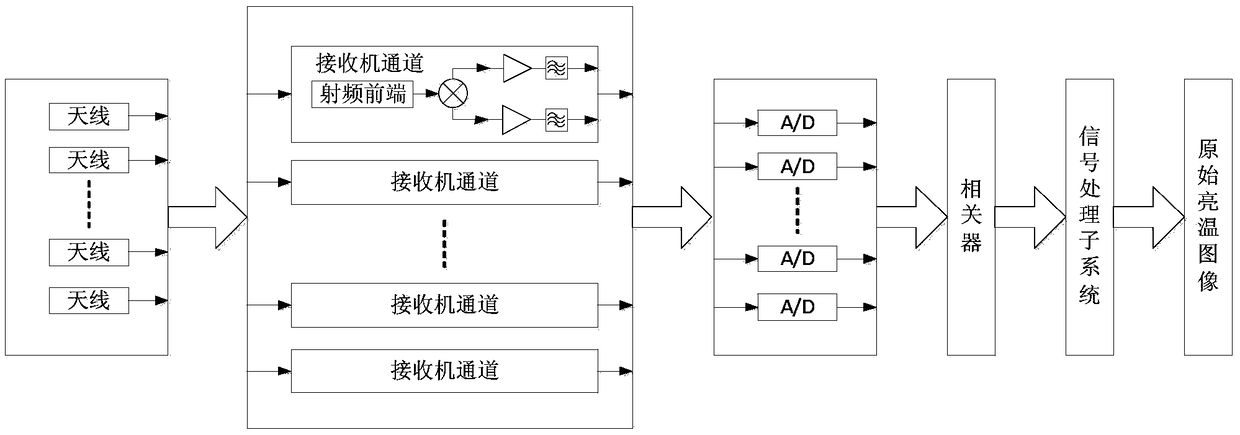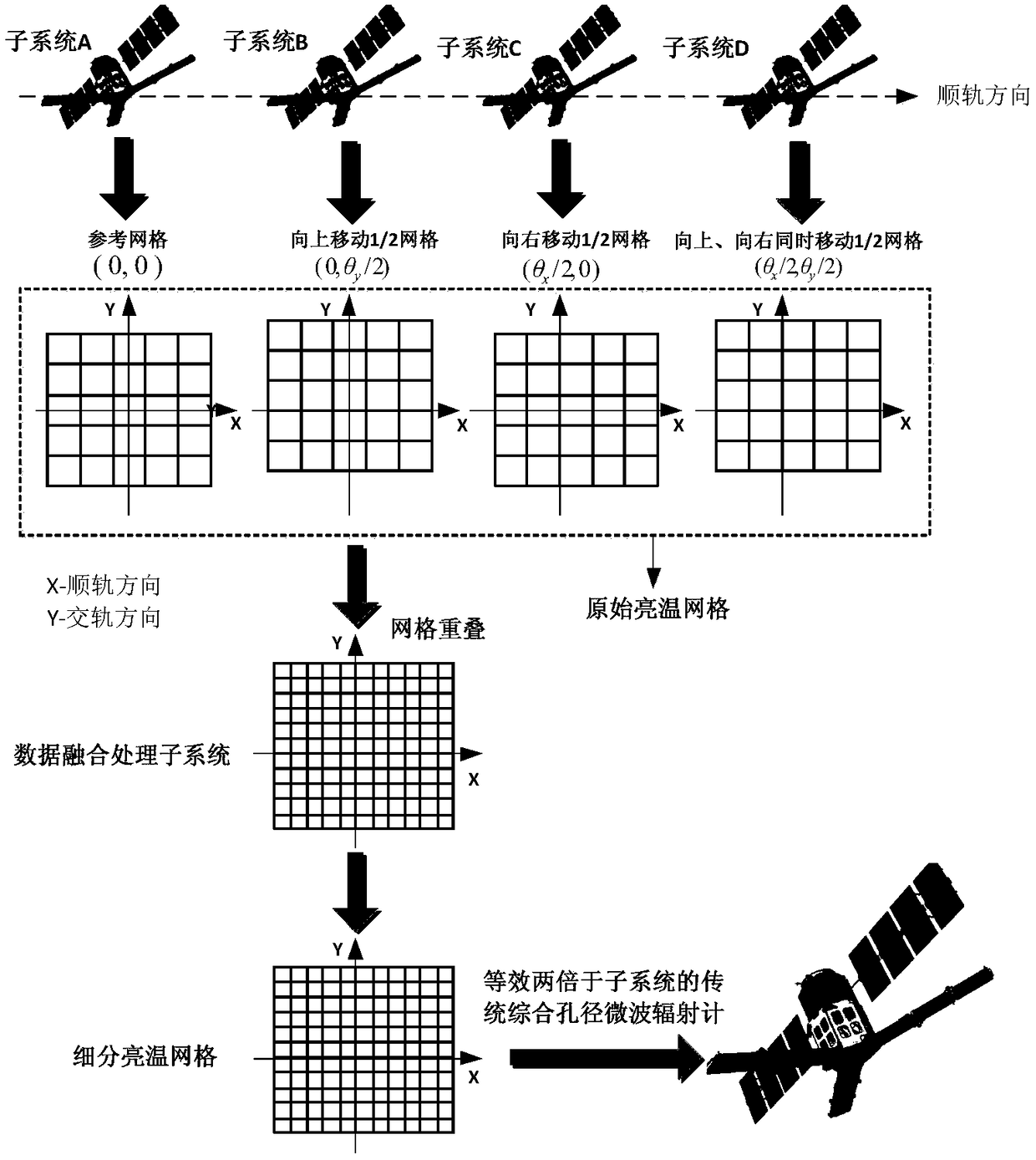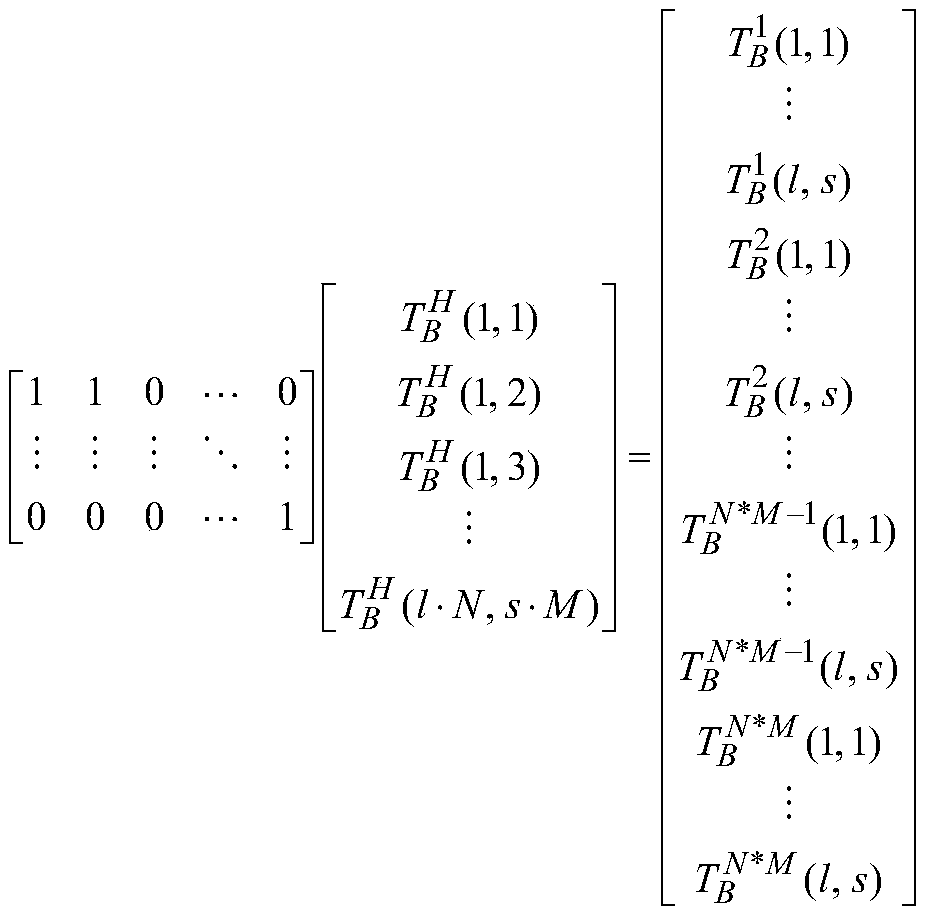Data fusion based spaceborne distributed integrated aperture microwave radiometer system
A technology of microwave radiometer and synthetic aperture, applied in radio wave measurement system, radio wave reflection/re-radiation, utilization of re-radiation, etc., can solve heavy scanning platform system hardware structure and signal processing, limit spatial resolution, system Problems such as complex hardware structure and signal processing can be achieved to reduce complexity and engineering manufacturing difficulty, improve two-dimensional spatial resolution, and alleviate the high complexity of hardware system and signal processing.
- Summary
- Abstract
- Description
- Claims
- Application Information
AI Technical Summary
Problems solved by technology
Method used
Image
Examples
Embodiment
[0050] Taking the two-dimensional synthetic aperture microwave radiometer system as an example, assuming that the two-dimensional directions are X-axis (track direction) and Y-axis (cross-gauge direction), select the original grid of one of the synthetic aperture microwave radiometer subsystems as a reference . Through preliminary research, it can be known that if the original grid is to be equally spaced in the two-dimensional direction, the number of original grid divisions is just equal to the number of required synthetic aperture microwave radiometer subsystems. Such as figure 2 As shown, an example of grid division and data fusion when N=M=2 is given. At this time, the distributed synthetic aperture microwave radiometer system consists of four identical synthetic aperture microwave radiometer subsystems, named A, B, C, and D, respectively.
[0051] Among them, A is used as the basic reference unit, and B adjusts θ in the Y-axis direction (cross-track direction) on the ...
PUM
 Login to View More
Login to View More Abstract
Description
Claims
Application Information
 Login to View More
Login to View More - R&D
- Intellectual Property
- Life Sciences
- Materials
- Tech Scout
- Unparalleled Data Quality
- Higher Quality Content
- 60% Fewer Hallucinations
Browse by: Latest US Patents, China's latest patents, Technical Efficacy Thesaurus, Application Domain, Technology Topic, Popular Technical Reports.
© 2025 PatSnap. All rights reserved.Legal|Privacy policy|Modern Slavery Act Transparency Statement|Sitemap|About US| Contact US: help@patsnap.com



